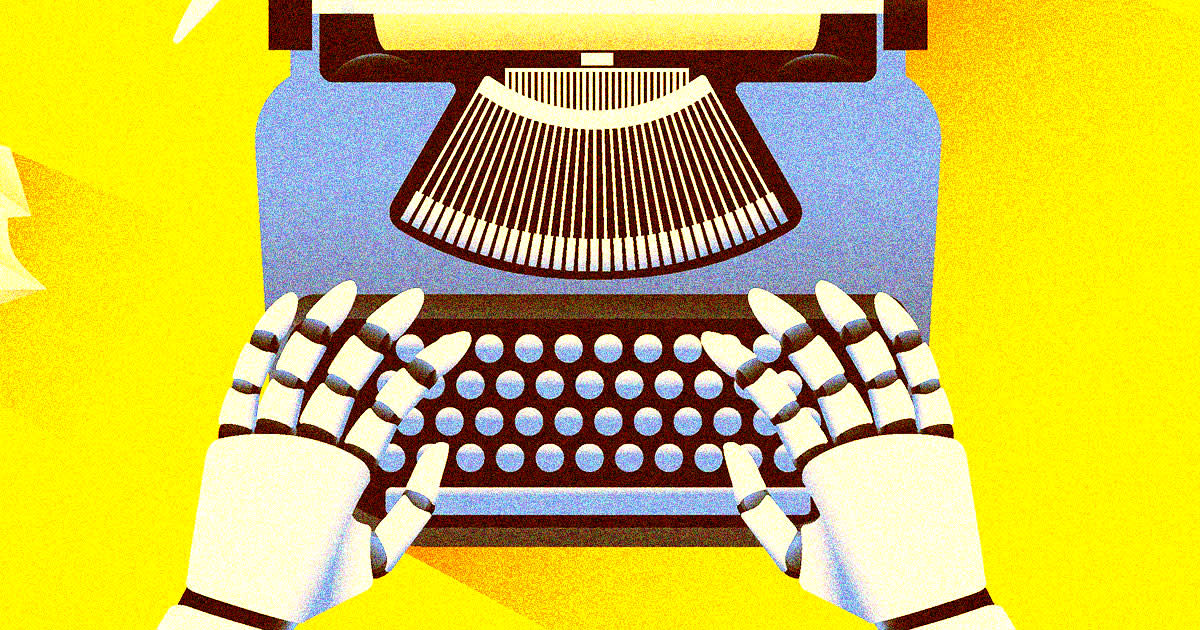Sites Busted Running AI Content Farm That Rips Off Real Journalists' Work When They Accidentally Left Prompt in Published Article

Australian broadcaster the ABC discovered a "parasitic" content farm that's churning out poorly plagiarized news stories through a number of publications being run by a company called Initiative Media.
In its investigation, the ABC came across an article about a local rugby player with a headline that was eerily similar to a real piece that was published by sports journalist Patrick Woods at the Townsville Bulletin.
"Not only [do they] hurt my ability to report on the [National Rugby League], but also damage the integrity of sports journalism," Woods told the broadcaster, calling out the operation as a new breed of "parasitic plagiarism merchants that are becoming all too common."
Just hours after the ABC reached out to a lawyer called James Raptis, whose byline was previously listed on one of the sites, the entire operation was shut down.
Raptis, who works for a large media company called Australian Community Media, issued a puzzling statement in which he admitted to hosting the websites but said he had "never written any content for them."
"After becoming aware of the specific nature of the sites, I advised the operator that the server would no longer host the sites and they were taken down," he wrote. "The content of these websites was unacceptable and I do not endorse the use of AI in this way."
The story is indicative of a much broader trend. The internet is facing a tidal wave of AI-generated garbage that's actively drowning out real journalism by real human beings — sometimes by shadowy spam operators, but other times by prominent outlets ranging from CNET to USA Today's publisher Gannett.
Just last this week, Futurism reported on a company called AdVon that's used AI to patch together low quality e-commerce articles — complete with fictional biographies and in some cases AI-generated profile pictures — for clients ranging from the Los Angeles Times to Sports Illustrated.
With the proliferation of AI chatbot tools like ChatGPT, the trend has steadily grown. Last year, online news credibility rating website NewsGuard found that a whopping 49 websites were producing content that appeared to be either mostly or entirely AI-generated in April of last year alone. Given the latest reports, that number is likely considerably higher now.
To some, this kind of polluting of the internet is a source of pride. In November, Jake Ward, founder of a UK-based SEO content marketing agency called Content Growth, bragged that "we pulled off an SEO heist that stole 3.6 million total traffic from a competitor."
His company made a business out of stealing competitors' sitemaps, turning them into URLs, and then generating thousands of articles from them using AI.
Microsoft's MSN news portal has also given a platform dubious publications pumping out AI-generated articles. In September, one of these news sites published a story declaring just-deceased NBA player Brandon Hunter "useless at 42," in a nonsensical garbling of an existing news story about his tragic death.
Hilariously, the ABC came across the smoking gun while investigating Initiative Media's shady publications in the form of what appears to be a simplistic AI chatbot prompt.
"You are an experienced sports journalist," read the prompt, which was inadvertently included in an October article. "You are required to rewrite the following article. You are required to be extremely detailed. You are required to utilize Australian English spelling."
"You must ensure the article you generate is different from the original article to avoid plagiarism detection," it continued.
More on AI garbage: Meet AdVon, the AI-Powered Content Monster Infecting the Media Industry
